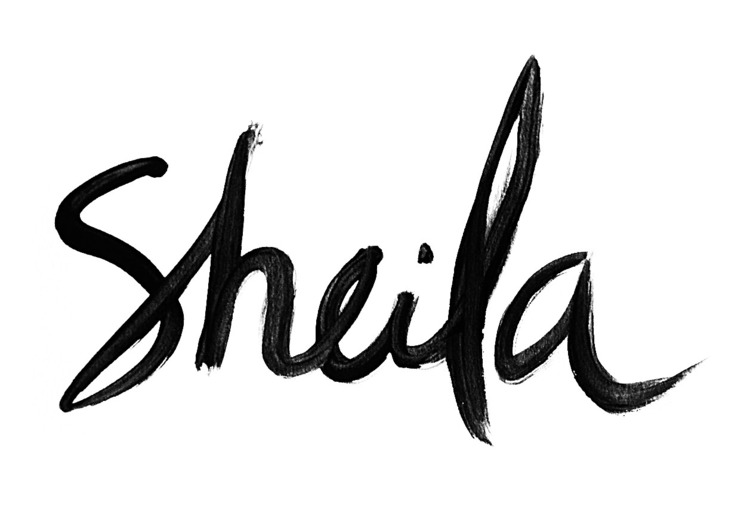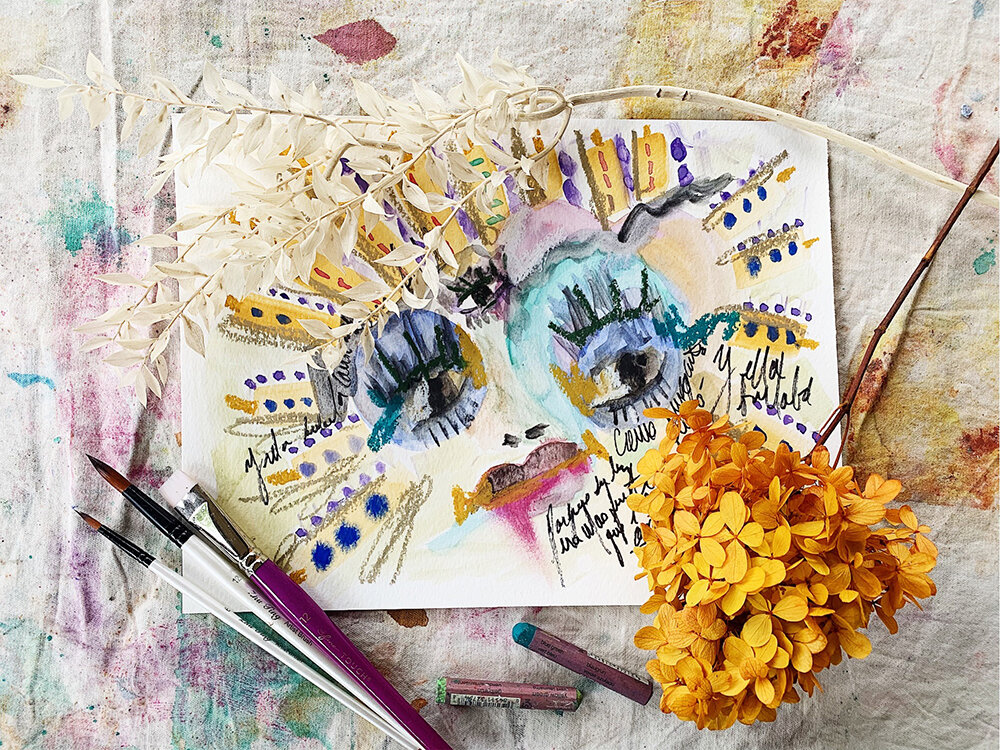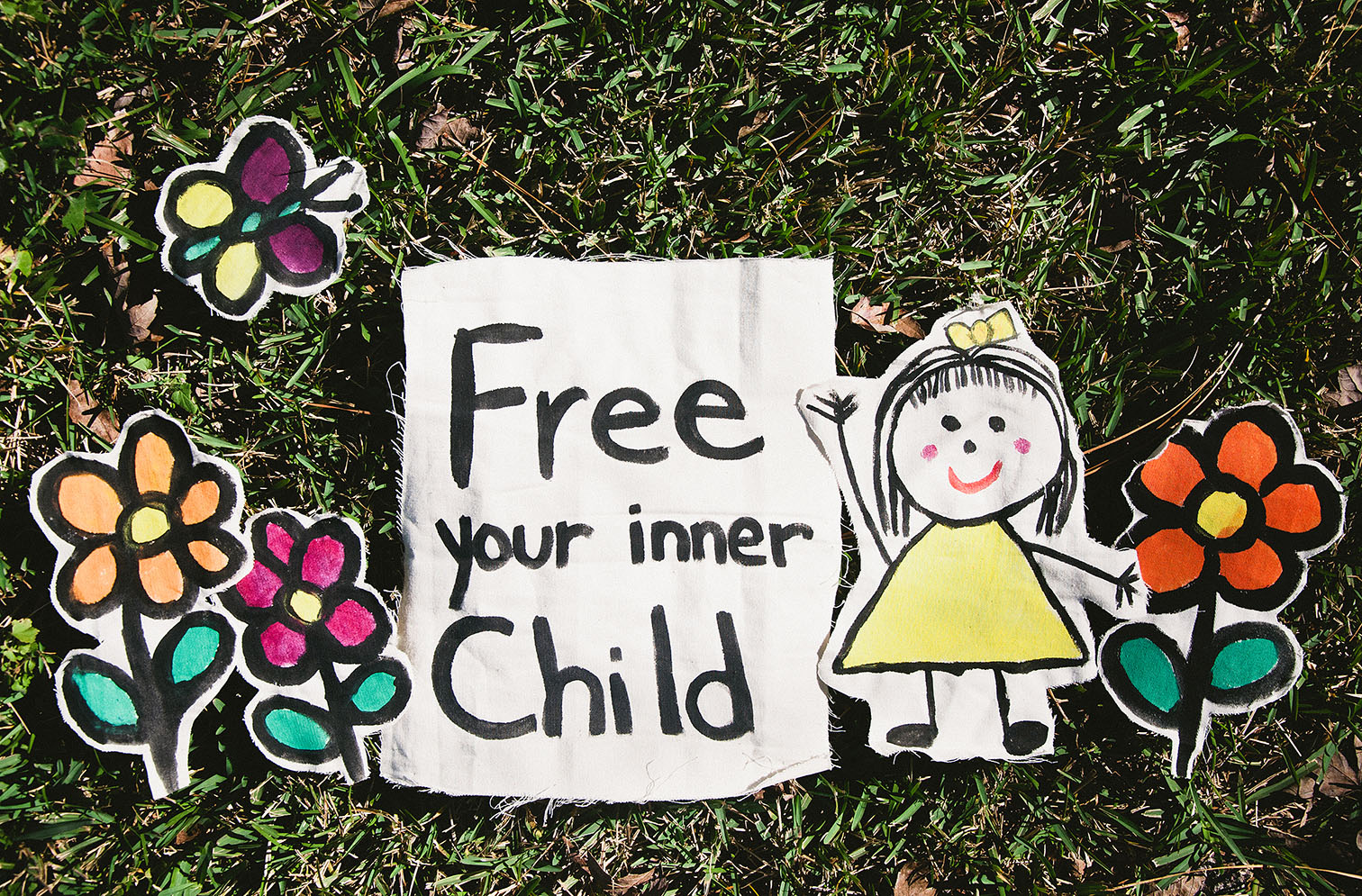Cuando era pequeña, pasa horas pintando y creando en cartulinas grandes, diseños y formas que en mi mente no hacían ningún sentido. Creaba y pintaba simplemente porque me hacían sentir bien. Esa pasión por expresarme creativamente, me ayudó a sobrellevar momentos difíciles a lo largo de mi vida. Soy fiel creyente en los beneficios que la expresión creativa tiene en los seres humanos.
Cuando creamos libremente, nos recolectamos con nuestro niño interior y jugamos. El juego es una de las formas más primitivas de terapia. Cuando hablo de crear, no es necesariamente pintar como los maestros de la historia de arte, hablo de ser niños nuevamente, y transportarnos a ese momento en que las reglas y las normas dictadas por la sociedad no existían, creábamos porque nos hacía sentir bien.
Crear expresivamente puede hacerse de distintas maneras, como pintar, dibujar, crear collages, crear con barro, bailar libremente, cantar, escribir, cocinar y así muchas otras cosas más.
Cuando el mundo se convierte en un área de juego, puede ser muy divertido. Cuando el mundo es una escuela, tenemos que aprender lecciones, prestar atención y hacer lo correcto. No hay manera incorrecta o correcta de ver el mundo. En resumidas cuentas, tener un balance entre juego y escuela, es la clave de cómo llevar nuestro diario vivir. Es bueno dejar el control…aunque sea por unos minutos.
A continuación algunos ejercicios que podemos hacer:
1-Pintar de manera espontánea e intuitiva es la mejor manera de expresar lo que sentimos. La pintura intuitiva es una invitación a aceptar lo que pintamos ... Incluyendo desorden, franjas de color, imágenes detalladas, precisión, con significado, sin sentido, rápido y sucio, o lento.
Sentirse bien, sentirse mal, sentirse atrapado. Pintar cuando estás inspirado o cansado o enojado o feliz o agitado y confundido. Todas estas formas de pintar, son bienvenidas.
En un papel en blanco o rehusado, tela o cualquier superficie, comienza a pintar lo primero que sientas,
seleccionando los colores que llamen tu atención. Puedes pintar con acuarela, pintura, crayones, o hasta con tierra.
Preguntas para hacer cuando estés pintando:
1- Qué pintaría si mi pintura no tuviera que verse bonita?
2- Qué pintaría si la pintura no tuviera que hacer sentido?
3- Qué pintaría si esta pintura no cuenta?
4- Qué pintaría si pudiera ser totalmente libre?
5- Qué pintaría si no existieran las reglas?
6- Qué pintaría su pudiera pintar algo extraño o diferente?
7- Qué pintaría si pudiera relajarme o ser espontáneo?
8- Qué pintaría si el resultado no importara?
9- Qué pintaría si pudiera jugar libremente con la pintura?
10- Qué pintaría si no existieran los errores?
11- Qué pintaría si no me importara el caos o el desorden?
12- Qué pintaría si pudiera pintar con mucho detalle y atención?
13- Qué pintaría si fuera un niño bien pequeño?
14- Qué pintaría si pudiera pintar super rápido?
15- Qué pintaría si hubiera mil pinturas en mi mente y solo esta es una de ellas?
Si no sabes que pintar, comienza pintando un punto y déjate llevar. Pintarás por el proceso y no por el resultado. Lo verdaderamente importante en cualquier acto creativo es el proceso de expresarte. Las experiencias creativas te pueden ayudar a expresar y manejar tus sentimientos. Confía en el proceso creativo, despeja tu mente, crea y juega. Da rienda suelta a tu imaginación, todos tenemos el poder de crear. Se trata del proceso, no del resultado.
2- Garabato
Garabatear es dejar que las energías contraídas o reprimidas dentro de ti se desarrollen y se expresen para liberar tu creatividad. No hay manera de salir mal. Puedes hacerlo con tu mano que no es dominante para soltar el control. Garabatea, luego busca una forma y coloréala.
Puedes también bailar el garabato. Al ritmo de la música, mueve tu cuerpo y haz un garabato que refleje el movimiento. Bailar y movernos calma la ansiedad.
3- Escribir continuamente
Simplemente toma 1 pedazo de papel y un lápiz, y luego escribe lo que se le ocurra hasta que la página esté llena. El objetivo es escribir sus pensamientos en tiempo real a medida que se desarrollan. Simplemente escriba lo que se le ocurra, incluso si es algo tan simple como "No sé qué escribir en este momento". Al practicar este ejercicio, estás descargando pensamientos y liberando tu mente para estar más concentrado, tranquilo y en el momento durante todo el día, por lo que puede ser un antídoto perfecto para todo tipo de pensamiento excesivo.
4- Collage intuitivo
En un papel en blanco, pega laminas o figuras que llamen tu atención, pueden ser hojas o flores, recortes de periódico, recortes de revistas, cualquier cosa que llame tu atención. Luego de tener las imágenes puedes pintar alrededor de ellas y escribir frases que vengan a tu mente con esas imágenes. El collage intuitivo proporciona una "liberación simbólica" de emociones, incluso si aún no estás
consciente de lo que son. Libera nuestra mente.
4-Dibujar, o hacer formas con la mano no dominante.
La Dra Capacchione propone que escribir y dibujar con la mano no dominante provee más acceso a funciones del lado derecho del cerebro como, sentimientos, intuición, espiritualidad y creatividad. Esta técnica, cuando se explora mediante artes visuales, provee una forma espontánea de expresión que ayuda al individuo a dejar atrás el control y juzgar el resultado final creativo, también nos invita más al juego.
Estos son algunas de las cosas que podemos hacer, pero hay muchas otras, al final, se trata de hacer algo que nos haga sentir bien y nos lleve a sacar nuestro niño interior.
Les envio un fuerte abrazo!!!












